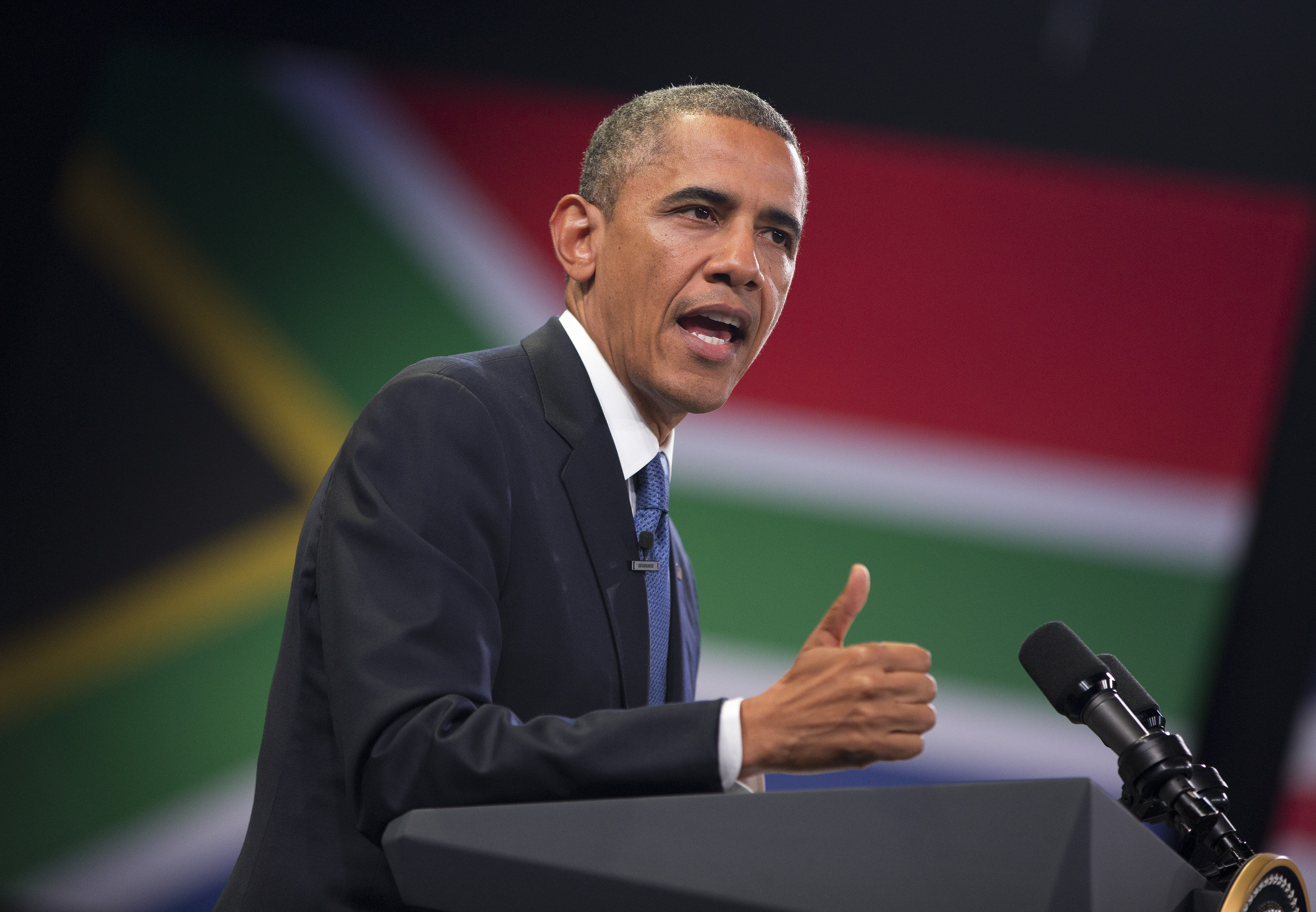
President Obama’s speech at the University of Cape Town on June 30 was a highlight of his anticipated trip to Africa, demonstrating a renewed commitment to US-African relations on the part of the administration. His speech formed a narrative of progress and hope for the future, acknowledging the strides that the countries of Senegal, South Africa, and Tanzania have made in democratization, while also making a point to ensure security in Central Africa. His mention of Sudan, South Sudan, and the Congo demonstrate a commitment to addressing mass atrocities in the region, while acknowledging the urgings of democracy’s greatest asset—its people: "We can't force a solution on to the region. The peoples of the region have to stand up and say that enough, it’s time to move forward in a different way.”
President Obama’s trip to Africa, though highlighting and applauding democratic nations and institutions, emphasized the attention that must be paid to push for peace in the Sudans, Congo and areas where the Lord’s Resistance Army operates. He stated,
“These efforts have to lead to lasting peace, not just words on a paper or promises that fade away. Peace between and within Sudan and South Sudan, so that these governments get on with the work of investing in their deeply impoverished peoples. Peace in the Congo with nations keeping their commitments, so rights are at last claimed by the people of this war-torn country, and women and children no longer live in fear.”
His acknowledgement of coalitions in the region that are working to stabilize an increasingly volatile environment heed the work of neighboring African countries seeking to bring peace and security to the region.
His trip, premised on the growth of African trade, democracy building, and youth participation has centered on the importance of grassroots participation in African progress – from President Obama’s visit to a South African community health center to a food security event in Dakar, Senegal. However, his emphasis on the importance of transparent institutions was a focal point of his speech.
While he applauded burgeoning democracies and rapidly growing economies in Africa, he also recognized the fragility and unevenness of this progress, and the dire security and human rights situations of many African nations: “From Congo to Sudan, conflicts fester — robbing men, women and children of the lives that they deserve. In too many countries, the actions of thugs and warlords; and drug cartels and human traffickers hold back the promise of Africa, enslaving others for their own purposes.” His reference to Central Africa reflects his administration's commitment to condemn and address mass atrocities in the region, consistent with recent changes to his foreign policy team, most notably Susan Rice’s ascendance as National Security Advisor and Samantha Power’s nomination to U.S. Ambassador to the United Nations.
During the last leg of his trip, President Obama responded to a recent U.N. group of experts report that confirmed Rwanda and Congo’s support of armed rebel group M23 at a news conference in Tanzania: “The countries surrounding the Congo, they've got to make a commitment to stop funding armed groups that are encroaching on territorial integrity and sovereignty of Congo.” He concluded by emphasizing his inability to force a solution onto the region, saying that peace must be reached at the grassroots, and praised Tanzania’s positive contributions to the United Nations peacekeeping force in Congo, or MONUSCO.
The speech signals an effort to alter the status quo of U.S.-African relations—from responding to pleas for aid and assistance to holistic partnerships with African nations—by addressing systemic oppression on the environmental, economic, social, and educational levels. President Obama announced plans to convene a summit in the United States next year, with heads of state from sub-Saharan Africa called to help “launch a new chapter in U.S.-African relations.” In addressing popular criticism against the U.S. for “meddling” in foreign affairs, he asserted that the administration would only assist and support an African infrastructure made up of transparent institutions: “America will make no apology for supporting African efforts to end conflict and stand up for human dignity.”
Photo: President Obama speaks to young African leaders in South Africa (AP)

